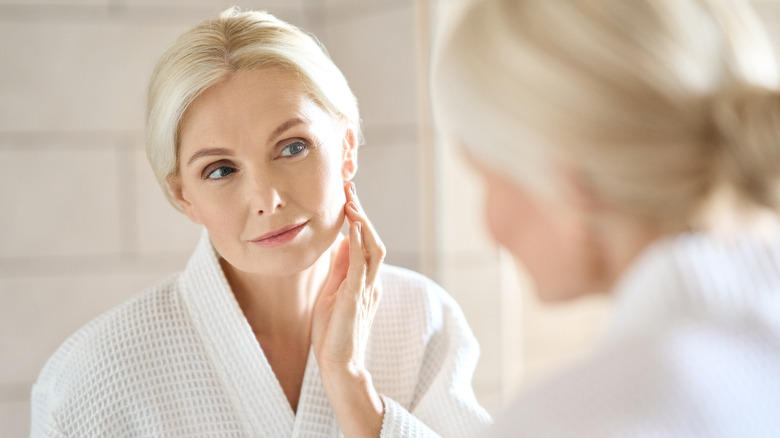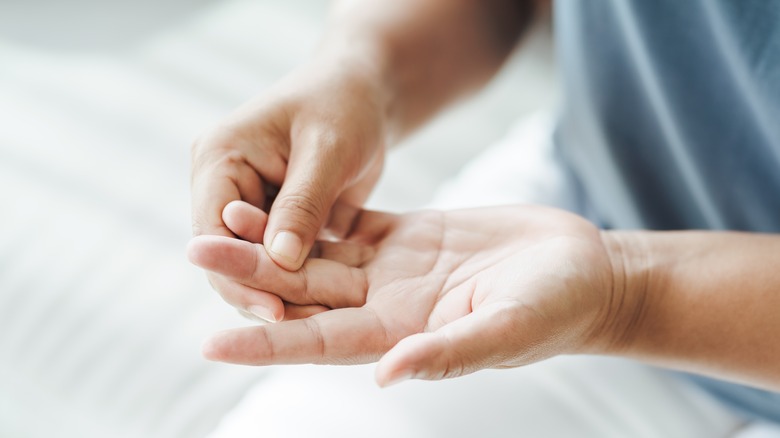Is There A Connection Between Rheumatoid Arthritis And Acne?
Rheumatoid arthritis (RA) is a chronic inflammatory disorder that mainly affects the joints, but it can affect the skin as well (via Healthline). Because of this, some people with rheumatoid arthritis who experience skin conditions like acne may wonder if their acne is caused by their arthritis. There is little scientific evidence to suggest that RA causes acne. However, the two conditions may be linked in a few ways. First, inflammation is a key feature of both rheumatoid arthritis and acne. Inflammation is the body's natural response to injury or infection and causes redness, swelling, and pain. In rheumatoid arthritis, inflammation damages the joints. In acne, inflammation can cause red, swollen pimples.
Second, both rheumatoid arthritis and acne can be caused by an overactive immune system. In people with rheumatoid arthritis, the immune system mistakenly attacks the joints, which leads to inflammation. In people with acne, the immune system may react to a change in hormone levels or bacteria on the skin, leading to inflammation. If you have rheumatoid arthritis and are experiencing acne, talk to your doctor about possible treatments. They can help you manage both conditions and improve your quality of life.
What to know about rheumatoid arthritis
There are many different types of arthritis, but rheumatoid arthritis (RA) is one of the most common. RA is a chronic inflammatory disorder that can affect not only the joints, but also other parts of the body (via Mayo Clinic). In some people, RA can lead to disability. The cause of RA is unknown, but it is thought to be caused by a combination of genetic and environmental factors. RA is more common in women than men, and usually begins after age 40.
Symptoms of rheumatoid arthritis include pain, stiffness, and swelling in the joints. The joints may feel warm to the touch and may be red or swollen. Over time, RA can damage the joints, cartilage, and bone, as well as cause fatigue, loss of appetite, and weight loss. There is no cure for rheumatoid arthritis, but there are treatments that can help relieve the symptoms, including medication, physical therapy, and surgery. In some cases, a splint or brace may be used to support the joints. If you think you may have RA, it's important to see a doctor so that the condition can be diagnosed and treated early. Early diagnosis and treatment can help prevent joint damage and long-term health issues.


